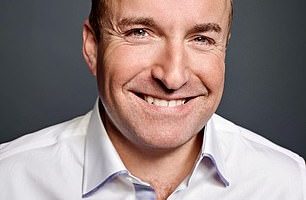
Investors could benefit from putting their money behind green funds and technology companies ahead of anticipated interest rate cuts next year, according to RBC Brewin Dolphin.
Central banks in the UK, US and the Eurozone are forecast to begin cutting interest rates next year after implementing multiple successive hikes over the past two years to temper inflationary pressures.
The UK inflation rate has already more than halved since late 2022 and is expected to fall closer to the Bank of England’s target of 2 per cent next year.

Sustainability: Investors will benefit from putting their money behind green funds and technology firms should inflation and interest rates fall, RBC Brewin Dolphin has advised
Rob Burgeman, a senior investment manager at wealth manager RBC Brewin Dolphin, suggests four likely trends for next year and the funds which stand to benefit.
Rebounding popularity of green funds
Environmental, social and governance funds were in vogue prior to and during the pandemic, but have suffered a more difficult 2023.
Investors have pulled billions of pounds out of ESG funds this year as rising gilt yields made bonds and cash more attractive, and soaring oil and gas prices boosted the likes of BP and Shell.
The reputation of the ESG space has also come under pressure from accusations of industry ‘greenwashing’.
Burgeman also noted that some green technologies were too subsidy-dependent, leading to ‘unrealistic’ valuations.
He said: ‘There was inevitably going to be some sort of correction. But, a lot of that has been flushed out, and this segment of the market will be stronger for it.’
JLEN Environmental Assets Group and Schroder Global Energy Transition Fund possess very diversified portfolios, with JLEN in fields varying from solar generation infrastructure to anaerobic digestion and battery storage facilities.
Smaller tech stocks due a rebound
‘Magnificent Seven’ tech stocks Apple, Microsoft, Meta, Amazon, Alphabet, Nvidia and Tesla have driven most global equity performance over the last year.
The rest of the technology sector, however, has been less successful.
Smaller and mid-cap stocks are generally more impacted by interest rate rises as they tend to have weaker balance sheets; for example, their debt payments typically comprise a greater proportion of earnings.

Safety: Though gold has little practical utility, Rob Burgeman notes it can act as ‘a form of insurance policy and usually warrants a place in most people’s portfolios’
But with rates set to drop this year, these shares could stage a healthy comeback.
Burgeman said: ‘Polar Capital Technology Trust has broad exposure to the largest technology businesses like Apple and Microsoft, as well as minor and major firms from other countries.
‘Allianz Technology Trust and Blackrock’s Next Generation Technology Fund have much of the same investments possessed by Polar Capital.’
Burgeman additionally suggested iShares Nasdaq 100 ETF, but he warned the fund is potentially quite volatile given that its top five holdings represent about 40 per cent of the index.
Small caps close the gap on larger peers
Active funds have underperformed passive funds in 2023 as their interest in stocks with higher long-term growth potential often excludes large-cap companies.
Burgeman said: Abrdn UK Smaller Companies, whose top holdings include meat producer Cranswick, promotional merchandise firm 4IMPRINT Group and ten-pin bowling specialist Hollywood Bowl.
For a more international reach, Burgeman advises iShares MSCI World Small Cap, which gives people exposure to over 3,300 different small-cap businesses across multiple countries.
Hold onto gold as an ‘insurance policy’
Gold recently hit record prices after increasing significantly since the pandemic started, as economic uncertainty has encouraged investors to park their money in safer assets.
At the end of 2019, the metal was worth $38,221 per kilo, since when it has risen to $50,934, according to BullionVault.
Though gold has little practical utility, Burgeman notes it can act as ‘a form of insurance policy and usually warrants a place in most people’s portfolios.’
Burgeman said: ‘Gold miners have much stronger volatility, so Burgeman suggests spot exchange-traded funds, such as iShares Physical Gold, Amundi Physical Gold and WisdomTree Physical Gold.’








